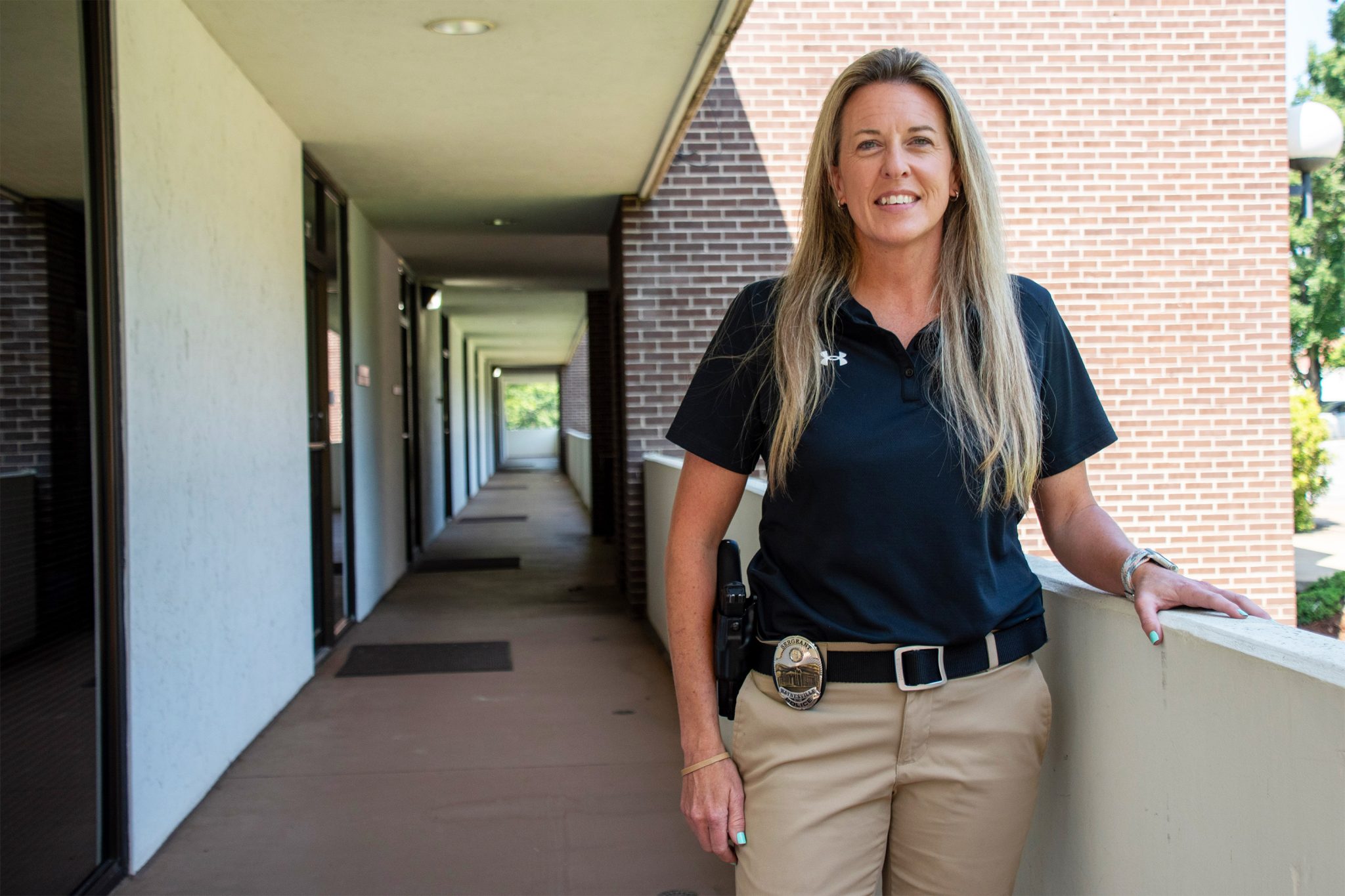In Asheville, North Carolina, a growing number of first responders are exploring ketamine-assisted psychotherapy as a potential remedy for mental health challenges. Among them is Waynesville Police Sgt. Paige Shell, who found herself grappling with depression and suicidal thoughts after nearly two decades in law enforcement.
Shell, who serves in a community about 30 miles from Asheville, faced persistent poor sleep and overwhelming despair, turning to conventional talk therapy with limited success. When her counselor recommended ketamine-assisted psychotherapy, she was understandably doubtful. “I didn’t know what to expect. I’m a cop. It’s a trust thing,” Shell remarked with a thin smile.
Ketamine, a drug initially used as an anesthetic since its FDA approval in 1970, has emerged as a potential treatment for severe depression and post-traumatic stress disorder (PTSD) among individuals exposed to high levels of trauma, including police officers, firefighters, and military personnel. However, its application in mental health treatment is relatively new and still largely unregulated.
Signi Goldman, psychiatrist and co-owner of Concierge Medicine and Psychiatry in Asheville, has utilized ketamine in psychotherapy sessions since 2017, noting the high burden of trauma faced by first responders. “They are often left without a lot of treatment options,” she said. Research indicates law enforcement officers may encounter as many as 189 traumatic events during their careers, in stark contrast to the two to three traumatic events experienced by the average adult. Alarmingly, more officers have taken their own lives in recent years than those killed in action, as reported by the first-responder advocacy organization First H.E.L.P.
Ketamine acts as a dissociative agent, detaching users from their bodily sensations, environments, and emotional states. While research conducted since the 1990s shows low doses of ketamine can effectively reduce depressive symptoms, the current regulatory environment presents challenges. John Krystal, chair of psychiatry at Yale School of Medicine, confirms that while evidence supports ketamine’s antidepressant properties, additional studies are required to evaluate its effectiveness for PTSD.
The market for ketamine therapy has burgeoned, with over 1,000 clinics now available throughout the U.S. Many of these clinics offer treatments at home, prompting concerns from the FDA regarding unapproved uses and potential risks associated with unsupervised applications. Side effects range from nausea to more serious risks like increased blood pressure and psychological distress. “Being on a psychedelic puts people in an extremely vulnerable state,” Goldman explained, emphasizing the importance of professional guidance during ketamine sessions.
For first responders like Rick Baker, CEO of Responder Support Services, ketamine-assisted psychotherapy presents a promising option. His organization provides mental health services tailored specifically for police officers, firefighters, and other first responders across North and South Carolina and Tennessee. Baker pointed out that many in this profession are often hesitant to engage in traditional therapy. “Ketamine provides a potential shortcut into the trauma memory and works like an accelerant to psychotherapy,” he said. “It strips away people’s armor.”
Typically, a ketamine dosage of half a milligram per kilogram of body weight is administered in a mildly altered state of consciousness. Goldman’s sessions last about two hours, with the drug effects felt for approximately 45 minutes. However, the high cost—often exceeding $1,000 for a single session—remains a barrier, as most insurance plans will not cover ketamine-assisted psychotherapy. The Department of Veterans Affairs does offer some reimbursement, but on a case-by-case basis for eligible veterans.
In Shell’s case, a donation to Responder Support Services helped cover her treatment costs, allowing her to begin her ketamine-assisted psychotherapy this spring. While revisiting traumatic incidents from her career was daunting, she felt pushed to confront these demons after Hurricane Helene brought catastrophic flooding to western North Carolina last year.
“Some of the sessions were rough,” Shell recalled. “Things came up that I didn’t want to think about, that I’d buried during my entire career.” Under the influence of ketamine, her troubling memories manifested like a surreal slideshow. “Then I would sit there and cry like a baby,” she admitted.
By early October, Shell had completed twelve sessions. While she hasn’t experienced an overnight transformation, she has noticed incremental improvements in her sleep and emotional resilience. “I smile more than I used to,” she shared.
Despite her progress, Shell remained cautious about discussing her experiences at work due to the stigma still surrounding mental health treatment in law enforcement. “I just didn’t want my people to think that I couldn’t handle the job,” she confessed. Sherri Martin, national director of wellness services at the Fraternal Order of Police, echoed these concerns, noting that many officers associate ketamine with illegal usage or counterculture settings, further complicating its acceptance as a treatment option.
Ultimately, Shell decided to share her journey with her colleagues, receiving a mostly supportive response which encouraged her to advocate for mental health awareness in the department. She now believes that addressing her mental health needs through ketamine-assisted psychotherapy has made her a more capable police officer. “It’s hard to help other people when you can’t take care of yourself,” she concluded, highlighting the ongoing need for effective mental health solutions for those who serve on the front lines.






